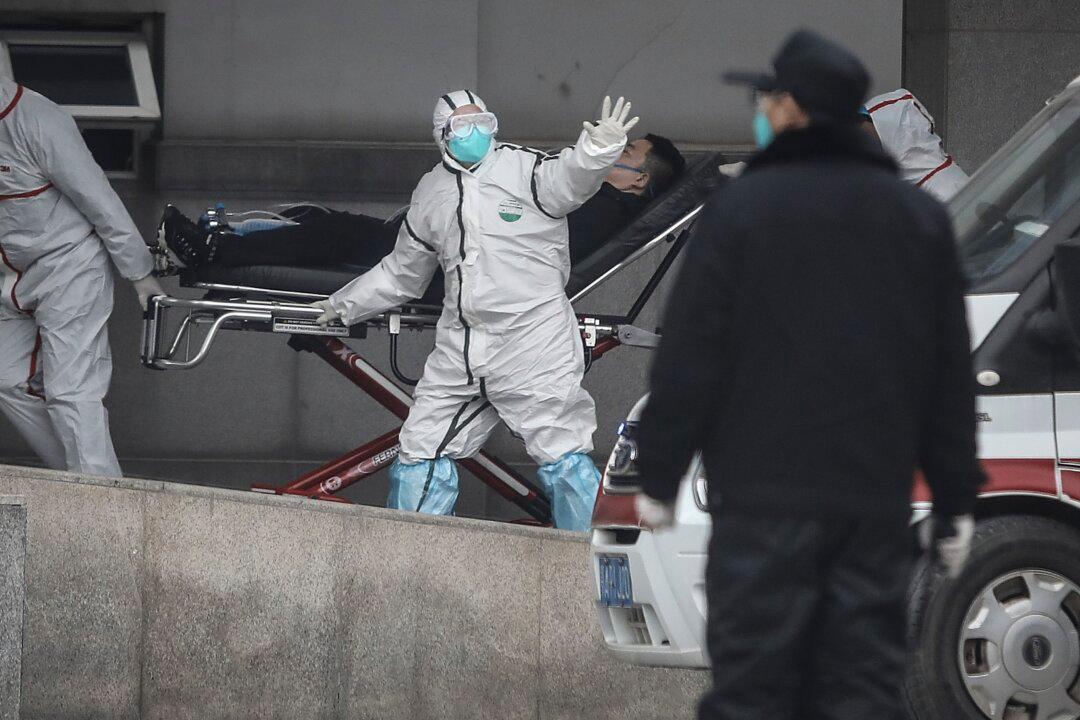China reported a fourth death due to a new strain of viral pneumonia, in addition to dozens more infections in Beijing, Shanghai, and Guangdong Province, as a top Chinese health official confirmed that the disease can be transmitted from human to human—raising concerns that the illness has already spread widely across the country.
Meanwhile, a third country outside of China has confirmed a case of infection: South Korea.
As the Lunar New Year holiday approaches—it falls on Jan. 25 this year—millions of Chinese are expected to return to their hometowns for festivities and travel abroad for vacation. Official data shows that roughly 3 billion trips take place every year during the new year period.
Zeng Guang, chief epidemiology expert at China’s Center for Disease Control and Prevention, warned Chinese not to travel to Wuhan, the central Chinese city where the illness first broke out, and for Wuhan residents to avoid leaving the city.
“The Lunar New Year is a key factor in the movement of people...This is our expert suggestion,” he said at a press conference in Beijing on Jan. 20.
Chinese leader Xi Jinping also made his first announcement about the disease on Jan. 20, indicating the severity of the outbreak. He called on relevant Party agencies and governments to take swift action to combat the illness. “The recent outbreak...must be taken seriously,” he said in a statement aired on state broadcaster CCTV.
Chinese premier Li Keqiang similarly urged local governments “to work closely with the WHO [World Health Organization] and the governments of Hong Kong, Macau, Taiwan, and other countries.”
To prevent the illness from further spreading, the United States, Canada, Taiwan, Japan, Thailand, and other countries have begun screenings and other measures at airports to detect potentially infected travelers.
Outbreak in China
The Wuhan health commission announced early on Jan. 21 that an 89-year-old male surnamed Chen has died from the viral pneumonia.Coronaviruses are a family of viruses that cause diseases ranging from the common cold to SARS, or severe acute respiratory syndrome.
There are also seven suspected cases in other regions across the country: two in southwestern China’s Sichuan Province; one in Yunnan Province, further west of Sichuan; two more in Shanghai; one in southern China’s Guangxi region; and one in Shandong Province, on China’s eastern coast.
State-run newspaper Beijing News, citing the Shenzhen Municipal Health Commission, reported on Jan. 20 that eight suspected patients have been quarantined in the southern Chinese city, in addition to the first confirmed case reported the previous day.
Also, on Jan. 20, eastern China’s Zhejiang provincial health commission announced on its official website that five people from four cities within its jurisdiction have exhibited pneumonia symptoms after recently making trips to Wuhan. They are currently quarantined as suspected cases.





